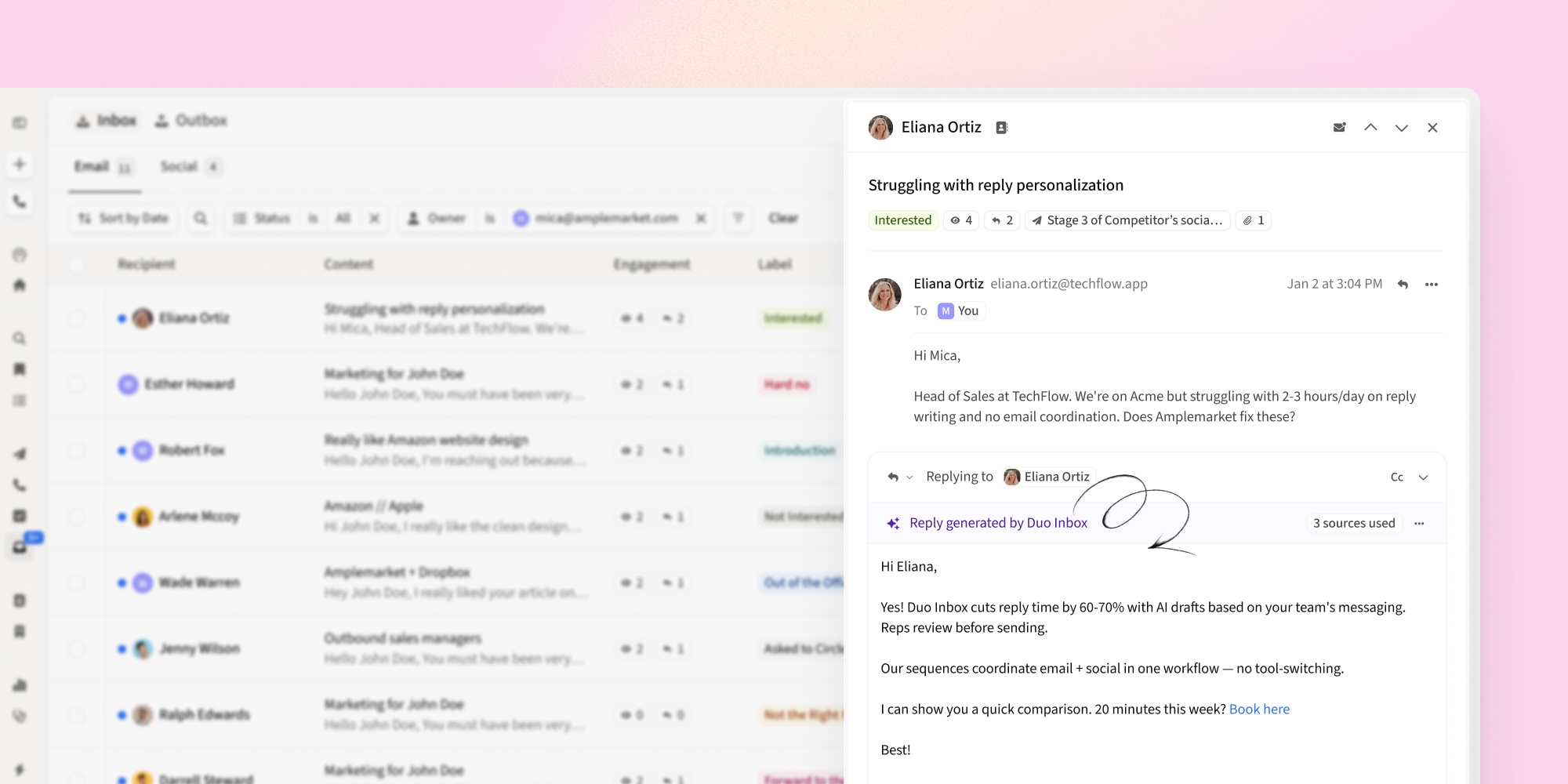COMPETITIVE INTELLIGENCE
Tap into competitor pipelines with real-time intent signals
- Identify the exact people talking to your competitors
- Capture opportunities before your competition
- Anticipate & mitigate customer churn with buying signals

Shorten your sales cycle with unbeatable competitive intelligence
Ditch vague keyword signals
Most tools rely on keyword signals; only Amplemarket gives you exact buying signals with contact-level data.
Reach out with confidence
Focus on the individuals you know are in the market to buy and reach out to them with a killer pitch.
Receive email alerts for top buying signals
Get weekly email summaries of your latest high-intent leads to get an extra head start on your outreach.
Proactively mitigate churn
Check if current customers are scoping out your competitors and tackle their needs before they churn!
Precise, contact-level data you can act on
No generic account-level data here! Amplemarket's buying intent signals feature identifies the exact individuals evaluating your competitors so you can contact them directly.


Tailor your outreach and close faster
Take advantage of these highly-qualified leads and customize your pitch to close ahead of your competitors!
Experience accurate buying signals with Amplemarket

Our Customer Success Team explains how you can get an edge over your competitors and identify some of your hottest leads.
Questions you may have
Frequently asked questions
What is a buying intent signal?

A buying intent signal is a behavior or action taken by a potential customer that indicates they are interested in making a purchase or already in the buying process. These signals can be used to identify high-intent prospects, build higly-qualified pipeline, and target sales efforts effectively.
How does Amplemarket analyze buying signs?

Amplemarket analyzes buying intent by closely examining the activities of your competitors, primarily through their digital footprints on platforms like Google and social media. This includes tracking targeted ads, posts, sales team interactions, and events. By aggregating and evaluating the engagement of individuals with these elements, Amplemarket constructs a buyer's journey and assigns an intent score. Leads that align with Amplemarket’s intent criteria are then enhanced with contact information and delivered directly to you in real time.
How can Amplemarket's Buying Intent Signals boost my sales?

Amplemarket allows sales teams to see exactly which individuals are engaging with specific competitors, they can personalize their outreach messaging to capture these leads mid-funnel. By identifying high-intent prospects and focusing on them, Buying Intent Signals can help teams stay ahead of competition, increase sales, and accelerate sales cycles, all whilst maximizing ROI on outreach efforts.
How is Amplemarket Buying Intent Signals different from other intent products?

The key differentiator for Amplemarket's Buying Intent Signals is the depth of data. Unlike other providers which rely on keyword search data, Amplemarket gives users contact-level intelligence on the exact individuals actively engaging with competitors. This makes for more reliable intent signals and data that is immediately actionable.
What data does Amplemarket use to generate buyer intent signals?

Where other providers offer intent signals based on black-box data-sourcing, Amplemarket's Buying Intent Signals are fully transparent and derive from publicly-available data on social media. This means that signals can still be manually verified and do not infringe on data privacy. Reps can use our AI-powered Buying Intent Signals without worrying about the provenance of the data.




.avif)
.avif)

































